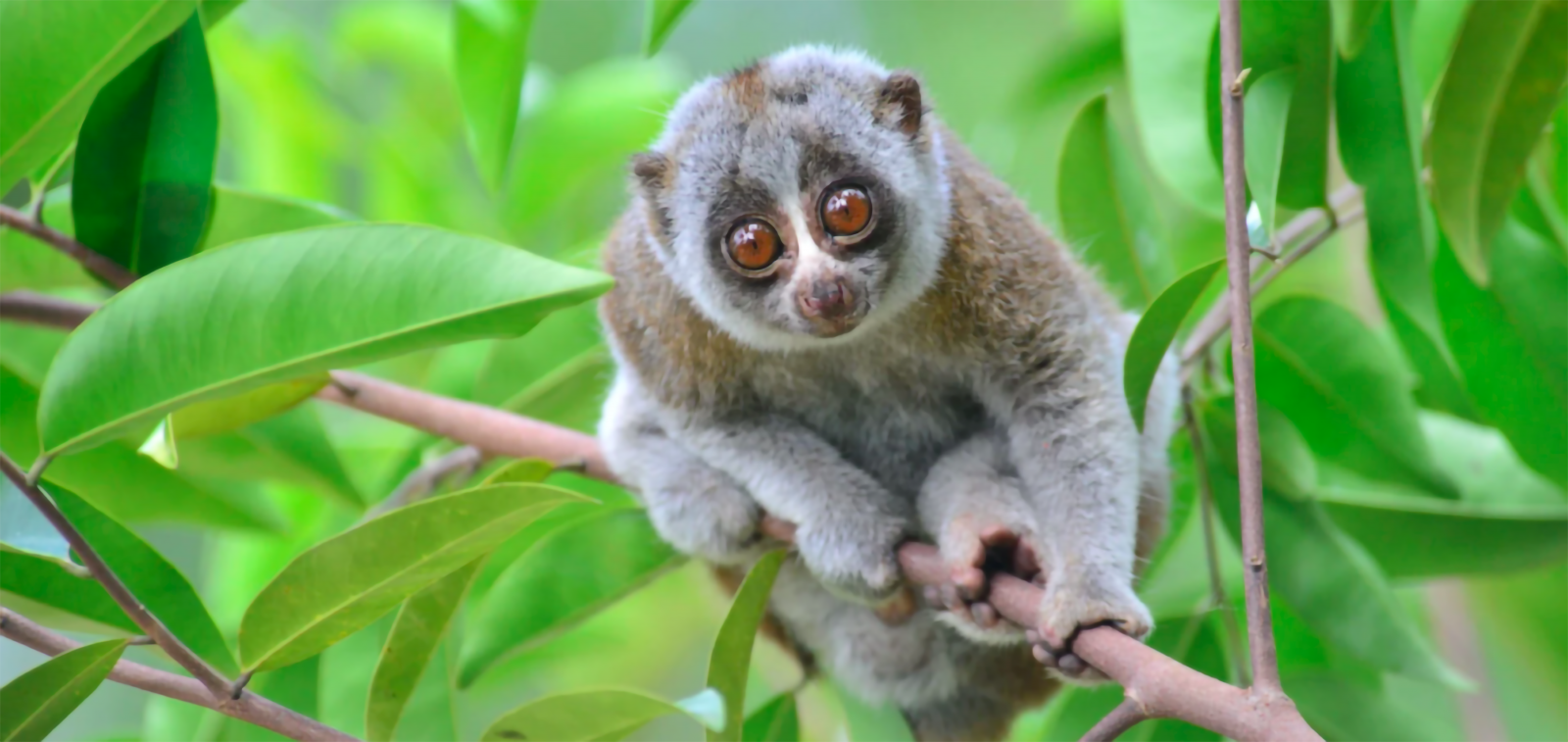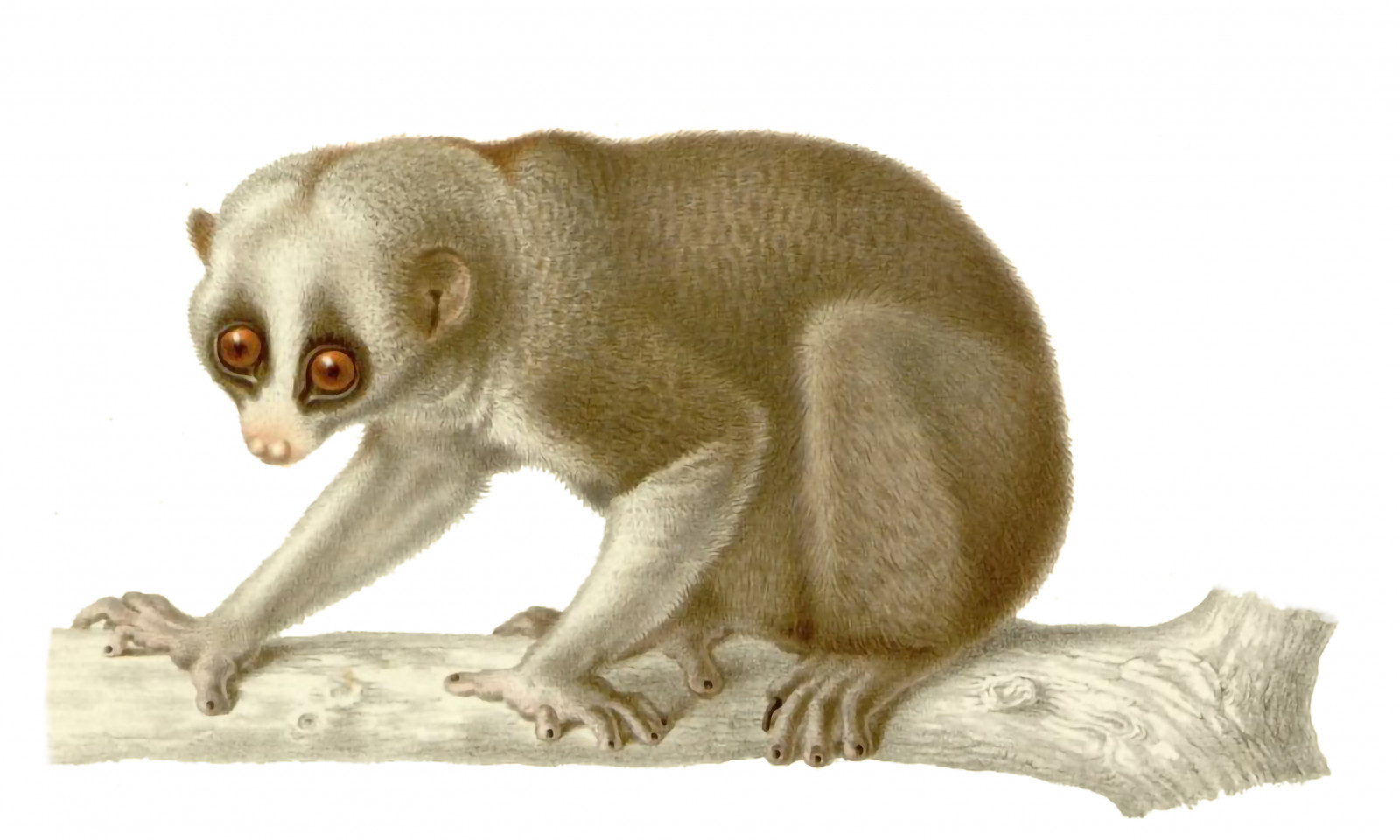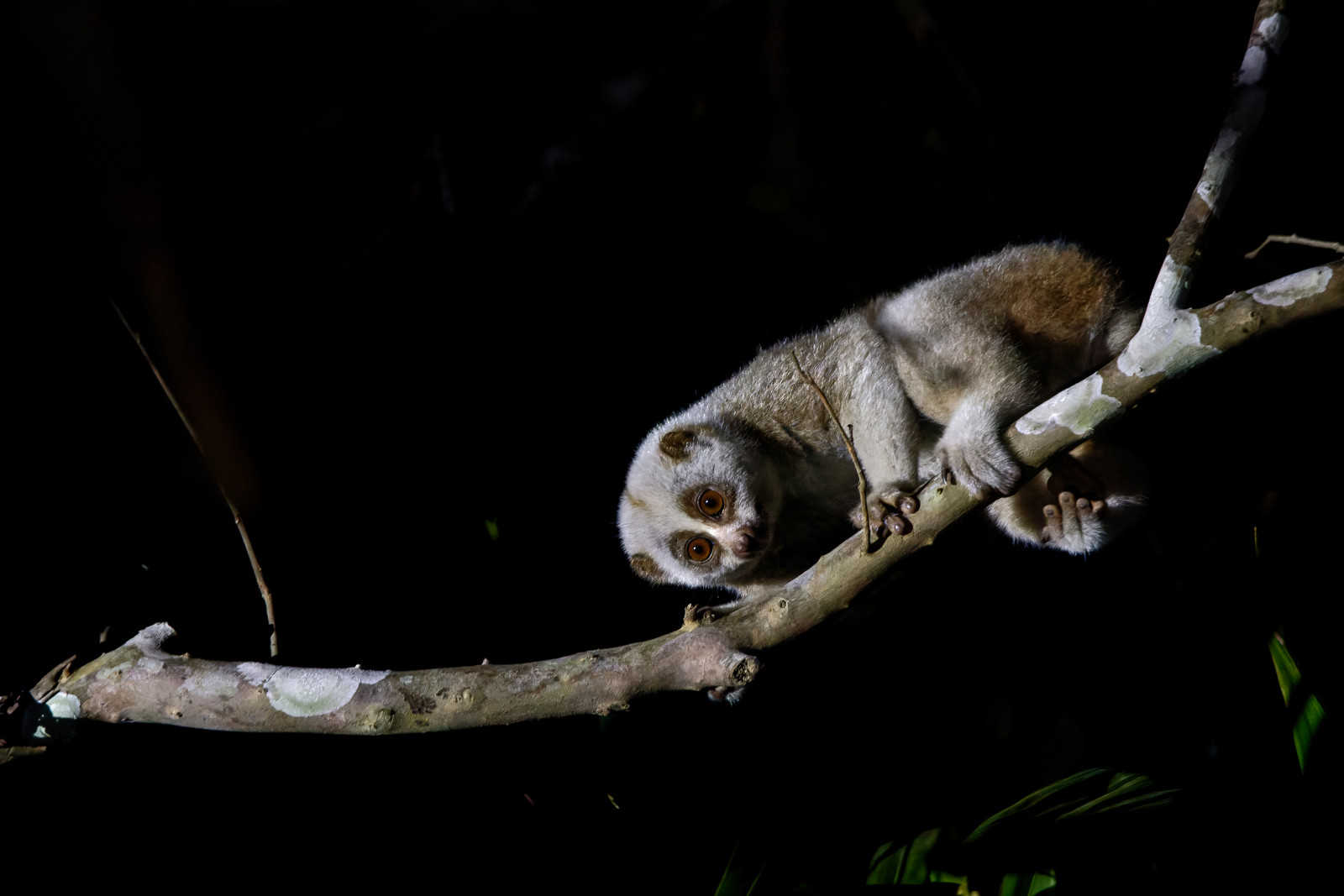Conserving the Bengal slow loris in Bangladesh
The Bengal slow loris is a queer animal — one of the 10 non-human primate species in the country. Very few know of slow lorises; even fewer know of their ties with us, the humans
There is only one nocturnal non-human primate in Bangladesh. And it is threatened with extinction.
The Bengal slow loris is a queer animal, one of the 10 non-human primate species in the country. Yes, we know of our monkeys, gibbons and langurs. But very few know of slow lorises; even fewer know of their ties with us, the humans, and our non-human cousins, the other primates.

Lorises are small primates, weighing 2,100 grams at most. Currently, there are 10 existing species, all living in the forests of South and South-east Asia. The Bengal slow loris, as the name implies, is a species that mostly lives in the region starting from eastern Bangladesh, all the way down to Peninsular Malaysia.
Its choices of habitats are diverse — rainforests, mixed evergreens, and deciduous forests. Slow lorises often venture into village groves peripheral to forests. But little is understood about this behaviour.
The 'Zorro' among primates
All lorises wear a facemask — blackened patches around eyes. Their eyes are big — an adaptation to nightlife. The limbs are strong in response to an arboreal lifestyle. Arm and leg length are nearly equal, unlike most of the strictly tree-dwelling primates that have arm-swinging abilities. Slow lorises possess unique adaptations in their hands and feet, equipping them with a pincer-like grip to hold onto branches for extended periods.
Sweet tooth
Slow lorises are intriguing creatures, and their diet plays a crucial role in their unique lifestyle. Their dietary choices are as fascinating as they are unique. These small, nocturnal primates have evolved to be specialised eaters. Their menu typically consists of insects, which they deftly capture with their nimble hands and consume with their small, sharp teeth.
One of the most distinctive aspects of their diet is their strong palate for tree sap and nectar. Slow lorises have a sweet tooth, and they often seek out trees with sap flows or nectar-producing flowers. They use their specially adapted tongue to lick up these sugary treats, which provides them with a valuable source of energy.
Occasionally, slow lorises might add a bird's egg to their diet, demonstrating their opportunistic nature. However, this is a less common occurrence compared to their primary food sources.

Moves like a sloth, bites like a snake
Lorises are slow moving. Yet they know how to defend themselves. Lorises are venomous primates — a trait unique among all primates and extremely rare among all mammals altogether. What is even more interesting is how they produce the toxin: its secretion needs to be activated. It stays stored in the sweat gland on the arm. Lorises stimulate the secretion by licking.
Why toxicity has evolved in lorises is not fully understood. Some theorise the trait as a predator deterrent, some say the toxicity is a mechanism to resolve territorial disputes and exert dominance.
Almost famous
As lorises are least-known and so many aspects of their lifestyle are unknown, they often stay out of the conservation limelight. This was particularly true in Bangladesh. This was also particularly true for the Bengal slow lorises, until recently.
Several young biology graduates from Jagannath University under the guidance of Dr Sabir bin Muzaffar, professor of biology at United Arab Emirates University, started some pivotal initiatives for the Bengal slow lorises in 2015.
Several new aspects of this night-dweller were revealed gradually. Numerous nights spent alone in the forests of northeastern Bangladesh by Hassan Al-Razi, Tanvir Ahmed, and Sabit Hasan did not go in vain. This was the turning point for the Bengal slow lorises.
The conservation biologists' community now treats the Bengal slow loris with the care this lovely yet threatened species deserves.
Hassan, now a PhD student at the University of Western Australia, then took a next-level step for the welfare of the slow loris.
The animal has a strong affinity towards tree-dwelling lifestyles. To do that, canopy connection is of crucial importance. Aware of this, Hassan started to figure out the loris habitats that are now severed by roads and highways and then, he and his team identified the weakest sections and connected those points with ropeways. Initially, the lorises were shy. But, with time, they started using them, like lorises from other parts of the world. This success story was published in the journal Folia Primatologica in 2020.
With collaboration with the Creative Conservation Alliance, Hassan radio-collared lorises in several fragmented forest patches in northeastern Bangladesh.

Keeping track
Isabela Foundation, a conservation organisation, launched the biggest initiative ever taken for a small mammal species. The project called Ecology and Conservation of Bengal Slow Loris targeted a nationwide survey of lorises. Sabit, the chief investigator of this World Bank-funded SUFAL project, has also successfully put radio transmitters for long-term up-close monitoring of loris lifestyles.
The foundation also set up a loris rescue centre in Madhobkunda Ecopark, Lathitila. Technically, after the one at Jankichara, Lawachara, this is the only other wildlife rescue centre that is meant for wildlife of mixed evergreen forests, and situated close to the forests.
Kabir bin Anwar, the foundation chair and former cabinet secretary of Bangladesh, is the patron of the radio-collaring study. He and the loris team named the first radio-tagged wild animal in Bangladesh after the Prime Minister. This is customary in many countries around the world where wildlife conservation practices are far superior and more intense.
As a token of visionary activities to protect nature and wildlife, the team treated a confiscated specimen, scientifically radio-tagged and released 'Hasina' in Satchari National Park this year. She is now being constantly monitored by the ever vigilant loris team of Isabela Foundation.
More puzzles to solve
All these studies and efforts found out that the population of slow lorises has declined by about 50% due to massive habitat loss and hunting over the last two decades in Bangladesh. Currently, most of their remaining habitats are small, isolated fragments and shrinking rapidly.
However, more worryingly, several other potential loris habitats remain unidentified, which often stay ignored and make way for development projects like the railroads in the heart of Chunati Wildlife Sanctuary or crazy propositions like African-themed safari parks near mixed evergreen forests.

Lorises, despite being venomous and potentially dangerous animals, carry high demand in illegal pet markets. Illegal wildlife trafficking is still an underrated conservation concern in Bangladesh. There are several records of lorises being rescued from village groves. These also pose unique questions and hypotheses on the Bengal slow loris ecology.
The legacy of Dr Muzaffar, and the backbreaking efforts of Hassan, Sabit and Isabela Foundation has drawn attention of potential funding agencies like Primate Action Fund of ReWild and the Mohamed bin Zayed Species Conservation Fund. Now, they all work with primate researchers from Oxford Brookes University, currently a primatology mecca in the world.
In Bangladesh, where wildlife conservation is often too little too late, and strongly skewed towards poster animals, these acts are commendable and courageous. There is hope for our little primate friends.
 Keep updated, follow The Business Standard's Google news channel
Keep updated, follow The Business Standard's Google news channel















